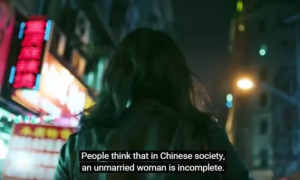Spanish archeologists have unearthed a 3,600-year-old mummy in the ancient city of Luxor, Egypt's Antiquities Minister said Thursday. Prosecutors accused nine people including three Germans of smuggling stone samples from pyramids.
In a statement, Mohammed Ibrahim said the rare find in a preserved wooden sarcophagus dates back to 1600 BC, when the Pharaonic 17th Dynasty reigned.
He said the mummy appears to belong to a high official. The sarcophagus is engraved with hieroglyphs and decorated with inscriptions of birds' feathers.
The exact identity of the well-preserved mummy will now be studied, Ibrahim said, adding that it was discovered by a Spanish mission in collaboration with the Egyptian antiquities ministry.
Antiquities department head Ali Al-Asfar said the two-meter sarcophagus still bears its original coloring and writings.
Meanwhile, Egypt's top prosecutor referred three Germans to criminal court on charges of smuggling and damaging antiquities and six Egyptians for acting as their accessories.
Hisham Barakat said authorities issued arrest warrants for the alleged German thieves, who fled to their country after the incident. He said authorities would communicate with Germany to restore the pieces they say were taken last April under the pretext of use for research.
The Egyptian defendants are already in detention.
Barakat says the Germans, along with their Egyptian guides, entered the famed pyramids of Giza with permits to visit but not excavate, and left with samples of stone from the ramparts of two tombs and the burial room of King Khufu.
Egyptian archaeologist Monica Hanna says the German researchers wanted to use the samples prove their hypothesis in a documentary they later filmed, which says that the pyramids were built by a people that pre-dates the ancient Egyptians.
The online documentary, removed in the wake of the controversy, showed one researcher inside the inner chambers of the Khufu pyramid, taking samples from the king's cartouche.
Egypt has experienced a security vacuum since its 2011 uprising. Thousands of artifacts have been stolen.
综合外国媒体报道,埃及文物部长穆罕默德•易卜拉欣2月13日表示,西班牙考古学家在埃及古城卢克索发掘出一具3600年前的木乃伊。同日,埃及检方指控9人走私金字塔石刻样本,其中包括3名德国人。
当天,埃及文物部发表声明称,在埃及当局的协助下,一支西班牙考古队在尼罗河畔古城卢克索进行古墓挖掘工作时,发现了一具2米长的人形木石棺。这具棺椁上刻有象形文字,装饰有羽毛状排列的铭文。并且,尽管制作于公元前1600年,但时至今日棺椁上雕刻画作的着色和纹样仍保持原来的面貌。
易卜拉欣说,藏于棺椁里的木乃伊可能是当时的一位高官,不过其确切身份还有待考证。
同日,埃及检方将三名德国人告上刑事法庭,指控其走私、损毁文物,另有6名埃及人面临从犯指控。
埃及首席检察官希沙姆•巴拉卡特13日表示,去年4月,三名德国研究人员在埃及向导的指引下,进入吉萨金字塔群,他们仅获准参观但被禁止挖掘。然而,他们进入金字塔后,却以需要证据证明一项研究假设为由,从墓室中窃取了石刻样本。
巴拉卡特说,这三名“德国盗贼”已经潜逃回国,埃及当局对其发出了逮捕令,并寻求德国配合将其偷走的文物完璧归赵。而6名埃及被告已被羁押。
自2011年发生政治动荡之后,埃及陷入“安全真空”状态,致使数千件文物遭到偷窃破坏。由于担心失窃的文物会流落海外并在黑市交易,通常情况下,埃及会发出国际协寻通知。







